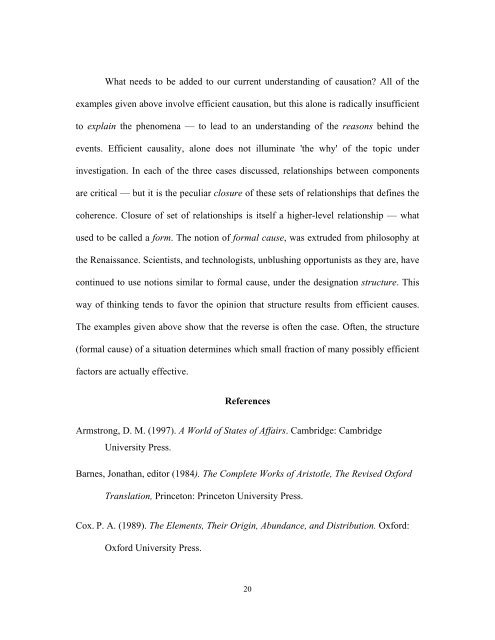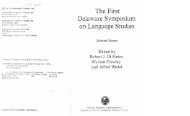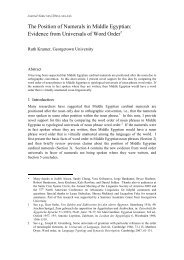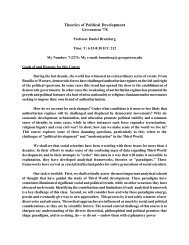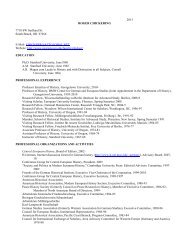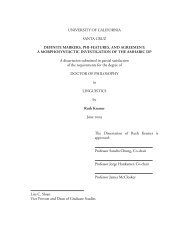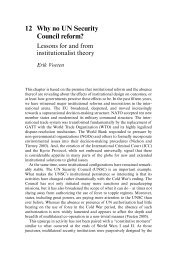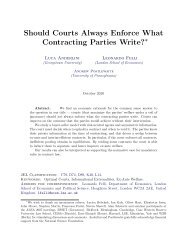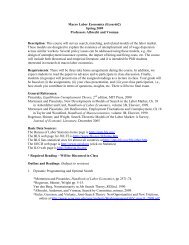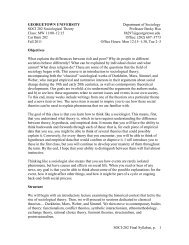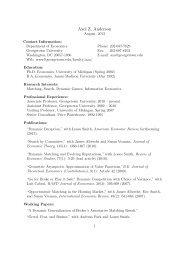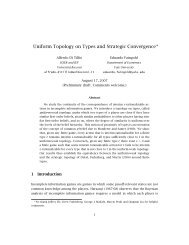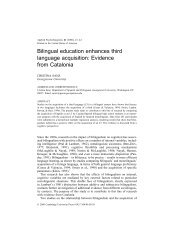On the Relevance of Repetition, Recurrence, and Reiteration.
On the Relevance of Repetition, Recurrence, and Reiteration.
On the Relevance of Repetition, Recurrence, and Reiteration.
Create successful ePaper yourself
Turn your PDF publications into a flip-book with our unique Google optimized e-Paper software.
What needs to be added to our current underst<strong>and</strong>ing <strong>of</strong> causation? All <strong>of</strong> <strong>the</strong>examples given above involve efficient causation, but this alone is radically insufficientto explain <strong>the</strong> phenomena — to lead to an underst<strong>and</strong>ing <strong>of</strong> <strong>the</strong> reasons behind <strong>the</strong>events. Efficient causality, alone does not illuminate '<strong>the</strong> why' <strong>of</strong> <strong>the</strong> topic underinvestigation. In each <strong>of</strong> <strong>the</strong> three cases discussed, relationships between componentsare critical — but it is <strong>the</strong> peculiar closure <strong>of</strong> <strong>the</strong>se sets <strong>of</strong> relationships that defines <strong>the</strong>coherence. Closure <strong>of</strong> set <strong>of</strong> relationships is itself a higher-level relationship — whatused to be called a form. The notion <strong>of</strong> formal cause, was extruded from philosophy at<strong>the</strong> Renaissance. Scientists, <strong>and</strong> technologists, unblushing opportunists as <strong>the</strong>y are, havecontinued to use notions similar to formal cause, under <strong>the</strong> designation structure. Thisway <strong>of</strong> thinking tends to favor <strong>the</strong> opinion that structure results from efficient causes.The examples given above show that <strong>the</strong> reverse is <strong>of</strong>ten <strong>the</strong> case. Often, <strong>the</strong> structure(formal cause) <strong>of</strong> a situation determines which small fraction <strong>of</strong> many possibly efficientfactors are actually effective.ReferencesArmstrong, D. M. (1997). A World <strong>of</strong> States <strong>of</strong> Affairs. Cambridge: CambridgeUniversity Press.Barnes, Jonathan, editor (1984). The Complete Works <strong>of</strong> Aristotle, The Revised OxfordTranslation, Princeton: Princeton University Press.Cox. P. A. (1989). The Elements, Their Origin, Abundance, <strong>and</strong> Distribution. Oxford:Oxford University Press.20


